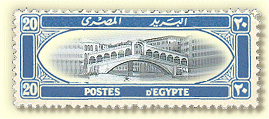

Venice became one of the Repubbliche Marinare, the Maritime Republics, a collection of city-states arising from the former territory of Byzantium, the other three being Genoa, Pisa, and Amalfi. Venice grew into an imperial power, acquiring Cyprus, Crete and other islands in the area. It brought Byzantine power to its knees when it captured Constantinople during the Fourth Crusade. Venice grew wealthy on its monopoly on the main land route to India, profiting from being the European intermediary and became a flourishing trade centre. At its height, 36,000 sailors operated its 3,000-strong navy. Greatly treasured were the many eastern goods, especially the highly valued pepper, which arrived through Egypt, via the Red Sea, most of it at Alexandria at the westernmost mouth of the Nile. Egypt was the second-oldest area of Venetian involvement, and a highly profitable one. It was completely foreign; there was no "special relationship" to be exploited there. So long as Egypt and, especially, the important port of Alexandria, were in the hands of a powerful state, it was not practical to think of capturing it. Trade was concentrated at Alexandria and, on the whole, Venice traded there consistently and profitably. After 1503 the struggle in the Mediterranean became a conflict between the new great powers: France, Spain, and the Ottoman Empire. The Italian cities were relegated to supporting roles. Squadrons of Venetian (and Genoese) galleys were present and played a vital part at the battle of Lepanto in 1571, but supreme command was in the hands of a Habsburg prince. Venice gave ground slowly, but was never again one of the great powers. Venetian naval efforts in the Aegean and the Dardanelles in 1717 and 1718 met with little success with wars with the Ottoman Empire. With the Treaty of Passarowitz (21 July 1718), Austria made large territorial gains against Venice. The Republic of Venice was conquered by Napoleon Bonaparte on May 12, 1797, during the First Coalition. The French conqueror brought to an end the most fascinating century of its history. During the Settecento (1700s), Venice had become perhaps the most elegant and refined city in Europe, greatly influencing art, architecture, and literature. Napoleon was regarded as a liberator by the city's Jewish population. He removed the gates of the Ghetto and ended the restrictions on when and where Jews could live and travel in the city. Venice became Austrian territory when Napoleon signed the Treaty of Campo Formio on October 12, 1797. The Austrians took control of the city on January 18, 1798. In 1866, following the Seven Weeks War, Venice, along with the rest of Venetia, became part of Italy.
|
|
|